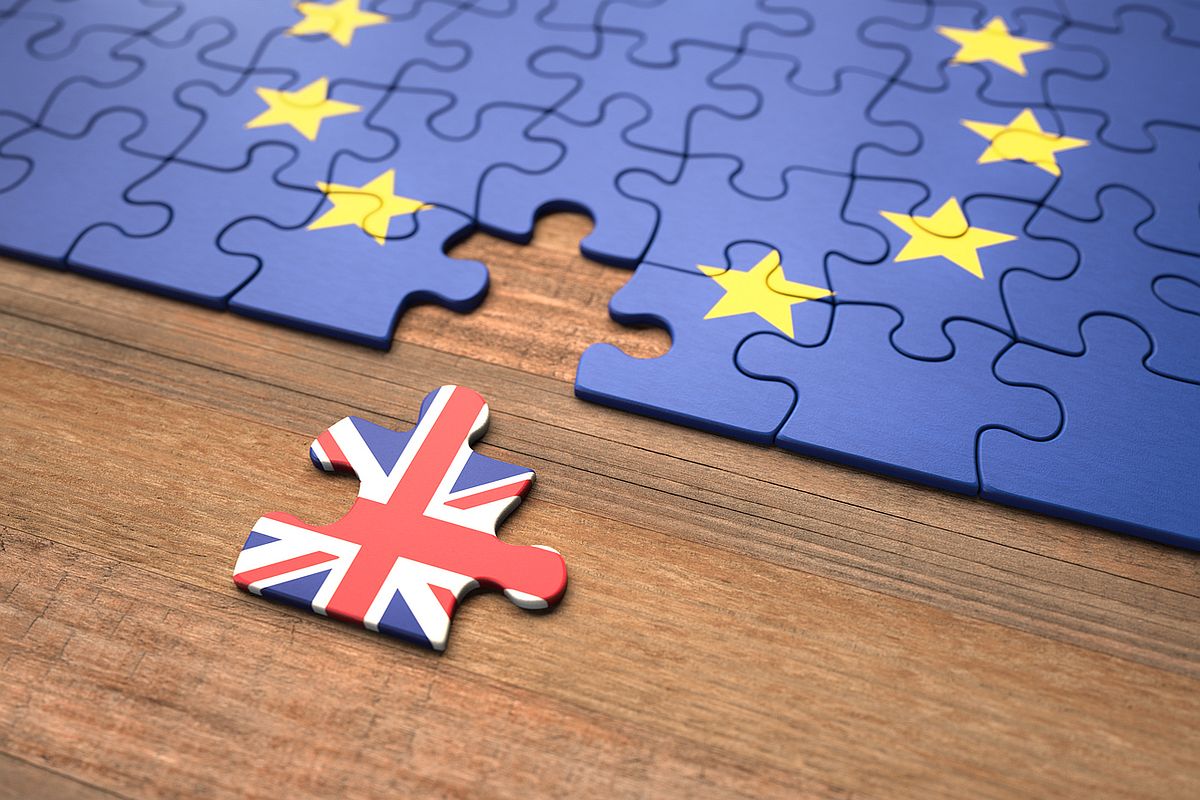Business travel between the EU and UK has become dramatically more complicated overnight, with work permits required for many business visitors, limits on length of stay and numerous other restrictions. Read our guide to all the new rules here.
Almost five years after the United Kingdom’s momentous vote to leave, details of the country’s new relationship with the European Union have been announced – and the changes for business travel are significant.
The EU and UK agreed a post-Brexit trade and cooperation deal on 24 December (https://ec.europa.eu/info/files/eu-uk-trade-and-cooperation-agreement_en). The agreement came into force on 1 January 2021, the day after the 12-month transition period for the UK’s departure from the EU expired.
For leisure travellers from the EU visiting the UK for non-business purposes, little will change so long as they stay less than six months. For British travellers of all kinds heading to Europe, there will be far more restrictions and bureaucracy than when they were citizens of the EU. And for business travellers heading in either direction, there are now substantial restrictions on what they can do without the need for visas, work permits or other paperwork.
New restrictions for business travellers in either direction
The box reproduced below from pages 753-754 of the 24 December version of the trade agreement sets out all the permitted activities for short-term business visitors between the EU and UK without requiring further documentation (travel between Ireland and the EU is exempted – see below). Many regular business travel activities are included on the list of permitted activities, such as attending meetings, conferences and training. However, many types of business travel are not on the list. For example, travelling from the UK to EU (or vice versa) to organise conferences or training is not allowed.
Most of the creative arts, including music, photography and even modelling, also appear to be excluded. There are also major question marks about visa-free consultancy work and many other kinds of professional assignment or temporary relocation.
Workers who rely on professional qualificiations to practise their occupation in another country (for example financial traders, doctors and lawyers) will also need to check whether those licences or other accreditations remain valid when travelling in either direction.
Law firms have warned that companies will need to assess every proposed business trip between the EU and UK to understand whether a work permit or other red tape is required. Length and purpose of trip will all be relevant. They also suggest that business people travelling in either direction should carry a letter from their employer to confirm the purpose and duration and who will pay for their expenses.
Additional restrictions for UK business travellers
In addition to these bilateral rules, pages 751-752 of the 24 December version of the agreement set out further restrictions by several EU states on UK travellers. Denmark, Cyprus and Hungary all say, for instance that a “work permit, including economic needs test, [is] required in case the short-term business visitor supplies a service.”
Changes for all visitors from the EU to the UK
Ireland-UK travel exempted
The UK and Ireland share a decades-old Common Travel Area that allows passport holders from both countries to travel and work freely in the other. As a result, Irish visitors to the UK are not subject to any of the new post-Brexit restrictions on other EU passport holders.
Length of stay
EU passport holders can visit the UK for up to six months without a visa regardless of the purpose (but subject to the restrictions on work explained above).
Identity cards
From 1 October 2021, EU citizens will (with only a few minor exceptions) no longer be allowed to enter the UK with an identity card. Passports will be needed instead.
Passport gates
Unlike in the opposite direction, EU passport holders will be able to continue using automatic passport gates on arrival in the UK.
Medical treatment
The UK is issuing a replacement (see below) for the European Health Insurance Card. Logically, this means EHIC holders from EU countries will continue to be entitled to medical treatment in the UK, but this has not yet been confirmed.
Changes for all visitors from the UK to the EU
Ireland-UK travel exempted
The Common Travel Area also means UK visitors to Ireland are not subject to any of the new post-Brexit restrictions they face to all other EU countries.
Coronavirus entry ban
At present all non-essential visits to the EU are banned because of coronavirus, except from a few countries with very low rates of infection. As the UK is no longer in the EU and the transition period has ended, and infection rates are high in the country, it is now included on the list of banned countries.
Length of stay
Regardless of the purpose of their visit(s), UK passport holders may not enter the Schengen Area for more than 90 days in any 180-day period, and subject to the restrictions on work explained above. The Schengen Area is all EU countries – except Bulgaria, Croatia, Cyprus, Romania and Ireland – plus Andorra, Iceland, Liechtenstein, Norway, San Marino, Switzerland and the Vatican City. So, for example, spending 45 days in Denmark and 46 days in France within 180 days would not be allowed.
UK passport holders are also forbidden to spend more than 90 days combined out of 180 in Bulgaria, Croatia, Cyprus and Romania.
Passport restrictions
The UK government says its passport holders entering the EU must have a passport that is valid for at least another six months. In addition, the passport must have been issued less than ten years from the date of entry (some UK passports have a validity of a few months longer than ten years).
Visa-free authorisation
From 2022 (the precise date has not yet been confirmed), all non-EU visitors to the Schengen Area will be required to obtain approval for visa-free entry through the European Travel Information and Authorization System. This is very similar to the Electronic System for Travel Authorization for visitors to the USA. Once again, the requirement to go through ETIAS approval will include passport holders from the UK.
The TravelpoolEurope perspective – Check carefully before every EU-UK business trip
By voting for Brexit, the United Kingdom voted to end freedom of movement for people, services, goods and capital between itself and the rest of Western Europe. With the publication of the trade agreement, it is becoming clear that ending freedom of movement means ending many kinds of business travel between the UK and EU without the need for visas or other documentation. Consulting, the arts, entertainment, working at trade shows and conferences, giving training – all these are examples which have already emerged as activities affected by the new restrictions on business visitors.
The main action point is to understand that business travel between the EU and UK is no longer effort-free. Every planned trip will need assessment for whether permission is required in the form of work permits, economic needs test and so on. Companies also need to track carefully how many days British employees spend in the EU and vice versa. Only after completing these checks will it be possible to go ahead and book a trip.
For longer-term assignments and relocations, the rules are even more complicated.
Passport and visa specialists are going to earn very well from Brexit. For everyone else, business travel is going to be more challenging and inevitably more expensive.
Permitted activities for short-term business visitors between the EU and UK – What the trade agreement says
The activities Short-term business visitors are permitted to engage in are:
a) meetings and consultations: natural persons attending meetings or conferences, or engaged in consultations with business associates;
b) research and design: technical, scientific and statistical researchers conducting independent research or research for a legal person of the Party of which the Short-term business visitor is a natural person;
c) marketing research: market researchers and analysts conducting research or analysis for a legal person of the Party of which the Short-term business visitor is a natural person;
d) training seminars: personnel of an enterprise who enter the territory being visited by the Short-term business visitor to receive training in techniques and work practices which are utilised by companies or organisations in the territory being visited by the Short-term business visitor, provided that the training received is confined to observation, familiarisation and classroom instruction only;
e) trade fairs and exhibitions: personnel attending a trade fair for the purpose of promoting their company or its products or services;
f) sales: representatives of a supplier of services or goods taking orders or negotiating the sale of services or goods or entering into agreements to sell services or goods for that supplier, but not delivering goods or supplying services themselves. Short-term business visitors shall not engage in making direct sales to the general public;
g) purchasing: buyers purchasing goods or services for an enterprise, or management and supervisory personnel, engaging in a commercial transaction carried out in the territory of the Party of which the Short-term business visitor is a natural person;
h) after-sales or after-lease service: installers, repair and maintenance personnel and supervisors, possessing specialised knowledge essential to a seller's contractual obligation, supplying services or training workers to supply services pursuant to a warranty or other service contract incidental to the sale or lease of commercial or industrial equipment or machinery, including computer software, purchased or leased from a legal person of the Party of which the Short-term business visitor is a natural person throughout the duration of the warranty or service contract;
i) commercial transactions: management and supervisory personnel and financial services personnel (including insurers, bankers and investment brokers) engaging in a commercial transaction for a legal person of the Party of which the Short-term business visitor is a natural person;
j) tourism personnel: tour and travel agents, tour guides or tour operators attending or participating in conventions or accompanying a tour that has begun in the territory of the Party of which the Short-term business visitor is a natural person; and 754
k) translation and interpretation: translators or interpreters supplying services as employees of a legal person of the Party of which the Short-term business visitor is a natural person.


Mailing list
Sign up if you would like to